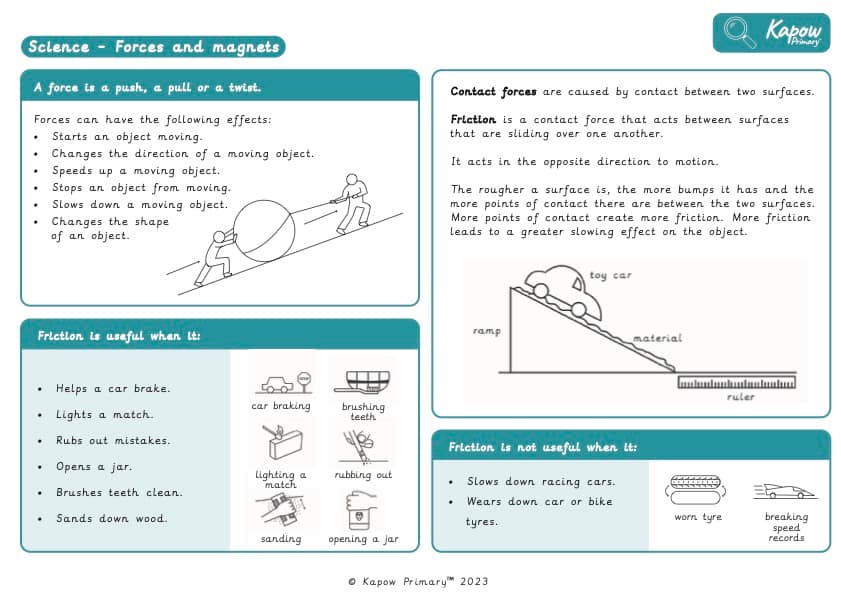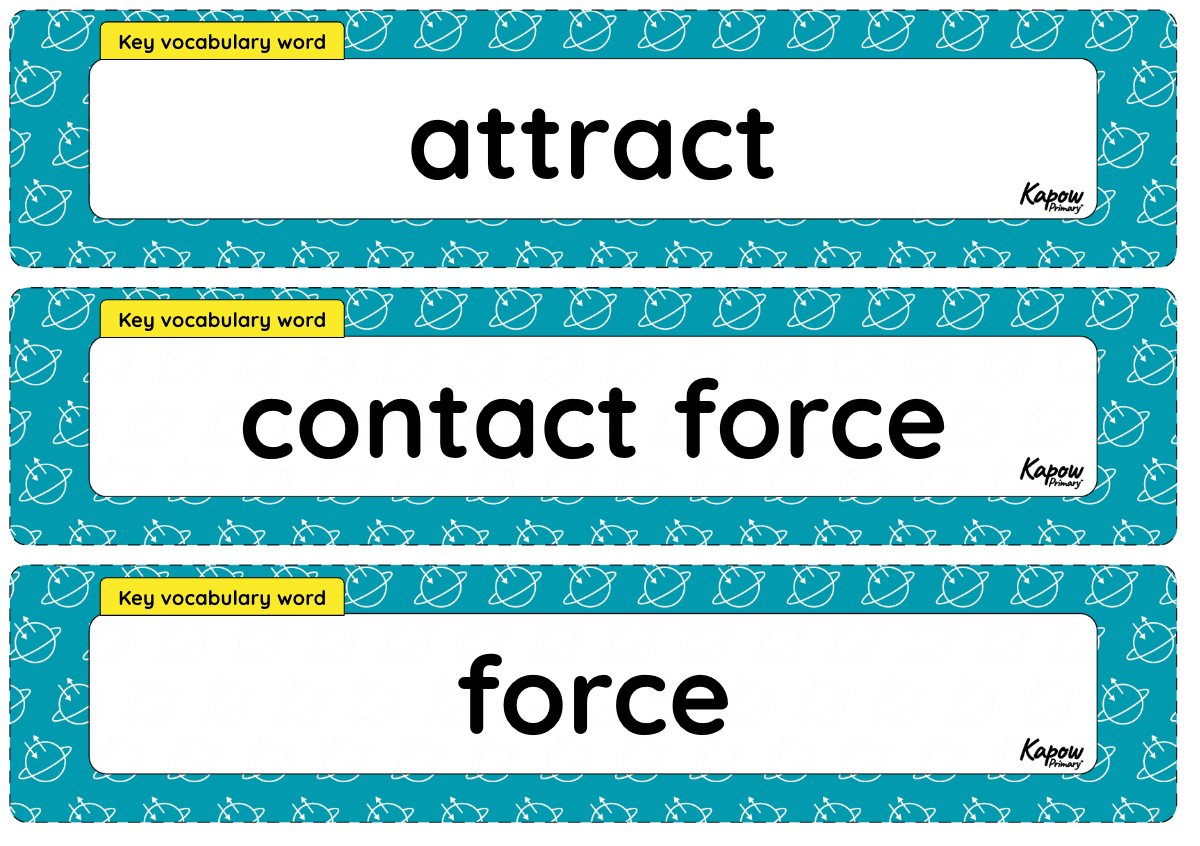Y3/4 (B): Forces and space: Forces and magnets
Exploring contact and non-contact forces, including friction and magnetism and their effects.
The Curriculum and Assessment Review final report has been released. We’re reviewing the recommendations and planning for future updates. Learn more
Unit outcomes
Pupils who are secure will be able to:
- Identify examples of pushes, pulls and twists.
- Define a force, including describing, naming and classifying contact and non-contact forces.
- Describe the relationship between friction and the roughness of a surface.
- Identify examples of friction being useful or not.
- Predict attraction and repulsion between like and opposite poles.
- Identify examples of magnetic and non-magnetic materials.
- Name some examples of types of magnets and compare their strengths.
- Describe some examples of the uses of magnets.
When working scientifically, pupils who are secure will be able to:
- Use arrows and scientific vocabulary to show the direction of a contact force.
- Use evidence to support conclusions.
- Identify the variables to change, measure and control.
- Write a method to explain how to use a magnet to sort and classify materials as magnetic or non-magnetic.
- Label the axes of a bar chart.
- Draw bars on a chart accurately.
- Identify key information from a source.
- Use more than one source to research a question.
Please note that Kapow Primary Science lessons are designed to be 1 hour and 30 minutes long to reflect the requirements of a core subject.
Suggested prior learning
Lessons
Y3/4: Lesson 1: Pushes, pulls and twists
Knowledge
- To describe the effects of contact forces.
Working scientifically
- To label a diagram using arrows and scientific vocabulary.
Y3/4: Lesson 2: Friction
Knowledge
- To recognise the effects and uses of forces.
Working scientifically
- To write a scientific conclusion identifying cause and effect.
Y3/4: Lesson 3: Investigating friction
Knowledge
- To interpret how and why things move differently on different surfaces.
Working scientifically
- To plan an investigation using variables.
Y3/4: Lesson 4: Magnets
Knowledge
- To describe the effects of magnets.
Working scientifically
- To write a method.
Y3/4: Lesson 5: Investigating magnet strength
Knowledge
- To compare the properties of different types of magnets.
Working scientifically
- To display data using a bar chart.
Y3/4: Lesson 6: Uses of magnets
Knowledge
- To explain the uses of magnets.
Working scientifically
- To research the uses of magnets.
Key knowledge
Related content
Unit resources

Knowledge organiser – Science Y3/4 (B): Forces and space: Forces and magnets
Aimed at pupils, two pages providing key facts and definitions from the mixed-age unit ‘Forces and magnets’.

Vocabulary display – Science Y3/4 (B): Forces and space: Forces and magnets
A display version of the key vocabulary from the mixed-age unit 'Forces and magnets'.
Cross-curricular opportunities
English:
- Writing, non-fiction writing.
Maths:
- Measurement, measuring length.
- Statistics, drawing bar charts.
British values:
- Mutual respect.

